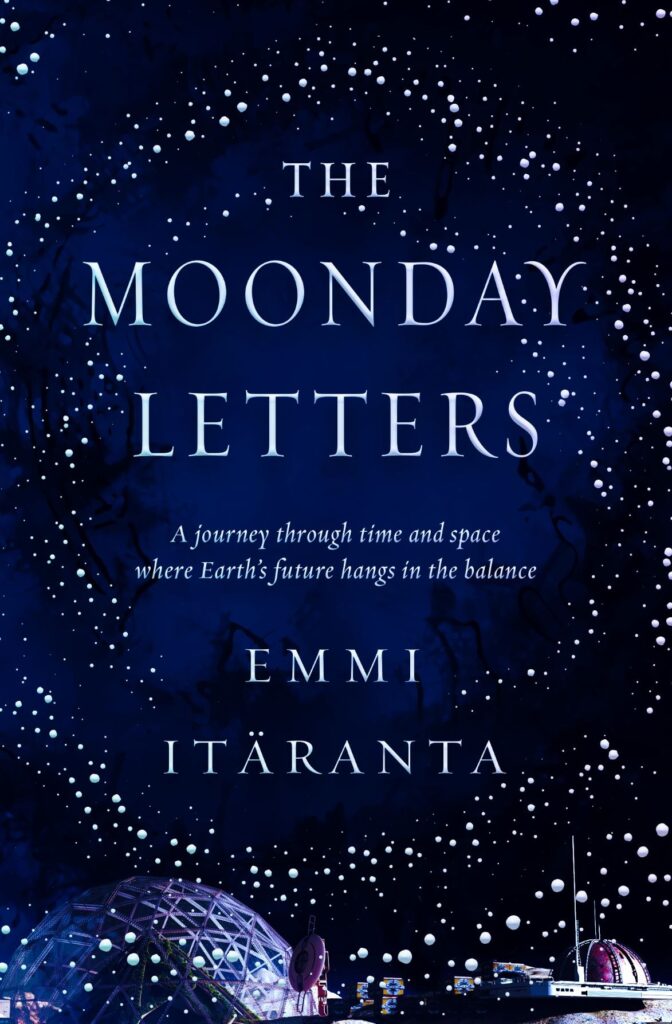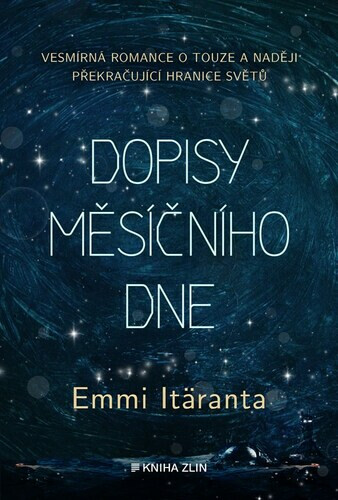[A] thrill ride… Itäranta’s book does what solarpunk should do: it presents a bold vision, with a road map, and, crucially, it clarifies what hope is and what it can do.
The Moonday Letters
Sol,
This may be the final page, the one I write after everything has already happened. The one I will tear out at the end of the notebook and place between the cover and the blank title page. The first word on it is your name: that way you will know at once the sentences on the upcoming pages are for you as much as they are for myself.
It is the morning after everything.
Lumi is an Earth-born healer whose Mars-born spouse Sol disappears unexpectedly on a work trip. As Lumi begins her quest to find Sol, she delves gradually deeper into Sol’s secrets – and her own.
While recalling her own path to becoming a healer under the guidance of her mysterious teacher Vivian, she discovers an underground environmental group called the Stoneturners, which may have something to do with Sol’s disappearance. Lumi’s search takes her from the wealthy colonies of Mars to Earth that has been left a shadow of its former self due to vast environmental destruction. Gradually, she begins to understand that Sol’s fate may have been connected to her own for much longer than she thought.
Part space-age epistolary, part eco-thriller,The Moonday Letters is also a love story between two individuals from very different worlds.
Buy The Moonday Letters Online

Buy The Moonday Letters Online
Reviews
A quietly powerful meditation on the human need to share life and love with others.
The prose of the book is measured, evocative, lucid, poetic, full of gravitas and emotion alike. This puts Itäranta in the same linguistic league as Nabokov, Conrad, Thomas Olde Heuvelt and Hannu Rajaniemi, masters in dual languages… [A] bravura, complex tapestry of a book.
I was put strongly and favourably in mind of Kazuo Ishiguro’s Never Let Me Go (2005). Both books are restrained novels; both start in fog, and spend more time looking inward than outward; both are about narrators who don’t allow themselves to know everything a reader might want to know. And both are novels in which the closing pages unleash a painful clarity.
Emmi Itäranta’s semi-mystical cosmology is captivating.
Just read it, it is a great book.
Brilliantly weaves together its two central questions: whether one marriage can survive, and whether humanity can find a way to thrive that does not ultimately rest on exploitation and inequality.
Awards
Tähtivaeltaja Award
Kuunpäivän kirjeet
Annual award given by Helsinki Science Fiction Society to the best science fiction book published in Finnish, including translations from other languages. Praise from the jury:
“The book, crisp and flowing in style, is an epistolary novel consisting of the messages its main character, Finnish-born Lumi Salo, writes to her spouse who works far away. The accomplished narration blends several timelines and fragments of history, news material, research knowledge and even advertisements. These form a many-stranded, consistent picture of humanity that has spread out to the Moon, Mars, space stations and gas giant satellites.”
Previous winners include Johannes Anyuru, Margaret Atwood, Iain M. Banks, Lauren Beukes, Cormac McCarthy, William Gibson, Risto Isomäki, Pasi Ilmari Jääskeläinen and Hannu Rajaniemi.
Helsinki Science Fiction Society ,
Translations

Czech
- Title
- Dopisy měsíčního dne
- Translator
- Michal Švec
- Publisher
- Zlín : Kniha Zlín